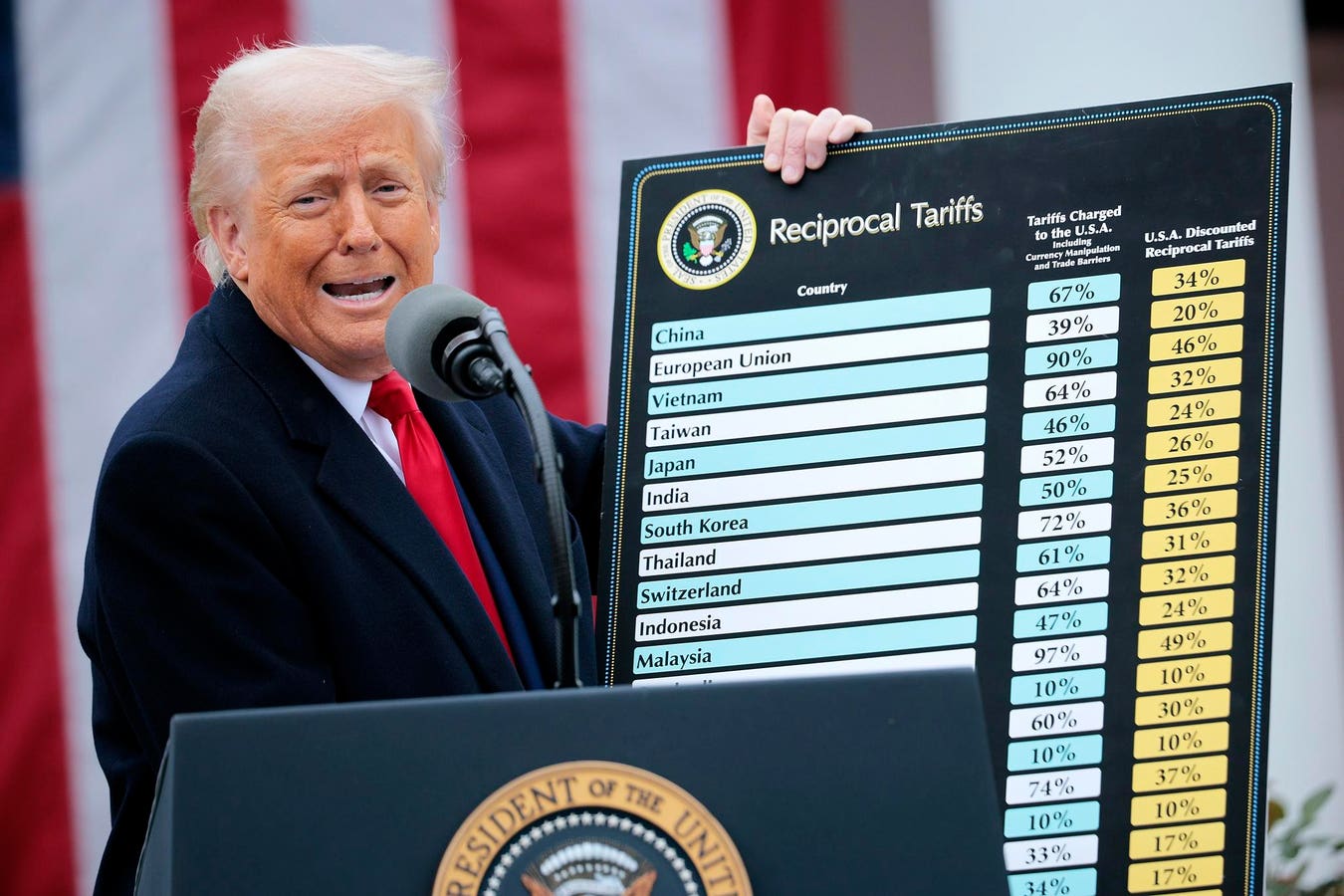WASHINGTON, DC – APRIL 02: U.S. President Donald Trump holds up a chart while speaking during a … More
Donald Trump’s scatter-gun imposition of tariffs is causing uncertainty around the world—and cybercriminals are exploiting the confusion.
Following months of tariff threats, they’ve been busily registering fraudulent domain registrations—301 in the first quarter of the year—to launch a wave of scam and hate campaigns.
And, said PreCrime Labs, the threat research team for security firm BforeAI, these domain registrations are originating in a wide variety of countries, including China, Iceland, the Netherlands, Italy, Thailand, Canada and Japan, suggesting a possible wave of mutual retaliation.
“Several domains found in the set pose a risk of misleading businesses into financial scams, particularly those within industries recently impacted by tariff changes,” said the researchers.
“There were some instances of domains containing anti-tariff content, potentially indicating activist or protest-oriented efforts. Beyond this, these websites could possibly be attempting to spread false political messaging or misinformation by providing ‘clickbait’ topics.”
One of the most prominent – and potentially dangerous – is a newly registered phishing domain titled US Customs and Tariffs, that aims to convince visitors that they’re required to make payments to a legitimate government entity. Requests for payments are spread using email or messaging campaigns with a strong sense of urgency, directing victims to the fraudulent site where they can be financially fleeced.
This website was recently registered with a hoster that has a history of hosting malicious domains in the past, the researchers said.
Meanwhile, cryptocurrency coins, leveraging tariff-related terms and the ‘Doge’ meme coin, have been launched on the Solana exchange, with their own X and Telegram channels. These websites appear pretty harmless, with AI-generated humorous content designed to attract investor attention.
There’s also a spate of new websites using the word “tariff” as a prefix, along with random items that could be affected by the tariffs, including wine, guitar, health and e-commerce, probably aimed at spreading misinformation.
Last month, too, a surge of trolling websites appeared, mocking Trump’s moves on tariffs.
“The use of harsh language to spread trolling messages and hatred against the government has a potential to influence voter sentiment and create hostility, hindering cooperation with governing bodies,” the researchers said.
“Attackers can exploit this by using the clickbait to mass-spam users, potentially compromising accounts and stealing personally identifiable information (PII), regardless of the user’s initial interest.”
The team says that the trend is likely to accelerate as the tariff war continues, with a rise in fraudulent businesses claiming to provide tariff-related services or educational resources on the new legislation.
“Therefore, it is strongly recommended that users thoroughly inspect newly formed consultancies, agencies, and cryptocurrency coins before engaging with them, as they may be designed to harvest personal information, further trapping users in financial scams,” the researchers warned.
The constant dizzying changes in Trump’s tariff policy is a goldmine for scammers, and crypto scammers in particular. One crypto investment scam called CanCap recently used a fake endorsement from the then prime minister Justin Trudeau, for example, to encourage the unwary to “invest”.








